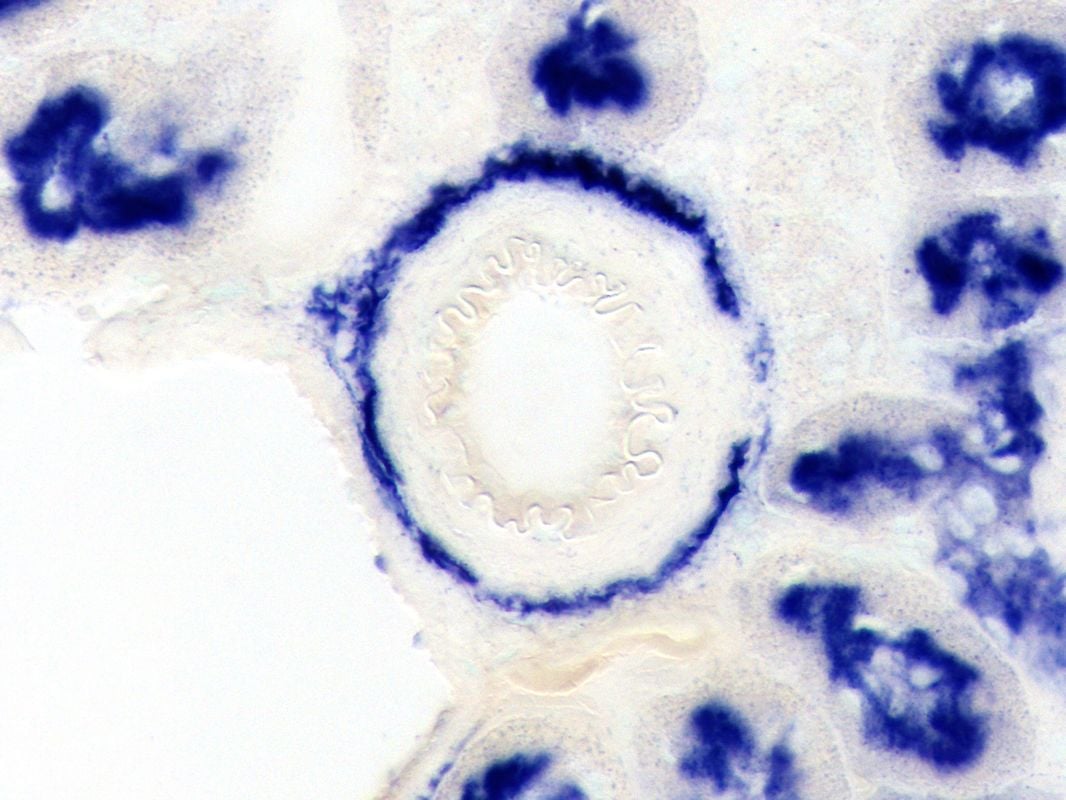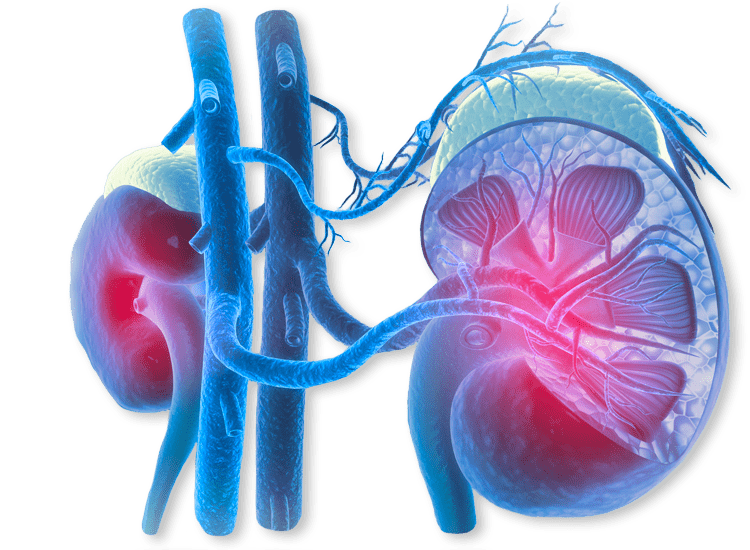Renal
Inotiv’s cutting-edge renal program accelerates research on solutions for kidney disease, leveraging expert scientists and advanced models.

Combating Kidney Disease: Unleash the Power of Inotiv’s Renal Research
Join us at the forefront of innovation in renal disease research and discovery with Inotiv’s cutting-edge Renal Drug Discovery and Development Program. Renal diseases affect millions of people worldwide, posing significant challenges to healthcare systems and patients alike. Our team of renowned scientists and researchers at Inotiv is at the forefront of the quest to unravel the complexities of renal disorders, ranging from chronic kidney disease to renal fibrosis and beyond.
Our multidisciplinary approach to drug discovery and development integrates techniques such as advanced imaging, molecular profiling, and biomarker analysis paired with disease pharmacology models to deliver robust data-driven solutions tailored to meet the unique needs of our partners in the pharmaceutical and biotechnology industries.
Whether you are seeking to accelerate drug discovery, validate therapeutic targets, or navigate regulatory pathways, Inotiv offers a comprehensive suite of services designed to propel your renal research forward. With a proven track record of success and a commitment to innovation, we invite you to join us in our mission to redefine the future of drug discovery and development. Contact us today to learn more about how Inotiv can empower your research initiatives and drive meaningful progress in the field of renal medicine.
Research and Discovery
- Research Models
- Browse our portfolio of standard research models
- Disease Pharmacology
- Access our disease pharmacology models for renal research
- Genetically Engineered Models and Services (GEMS)
- View our database of specialized GEMS rodent models
- Surgical Models
- Review our catheterized and specialized surgical models
Dissecting Kidney Disease: A 5-Step Path to Research Breakthroughs
Define the Research Question and Hypothesis
What specific aspect of kidney disease are you interested in studying (e.g., chronic kidney disease, specific protein interaction)? What do you think might be the cause, mechanism, or potential treatment, and how will you test it?
Literature Review and Target Identification
Research existing studies on your chosen topic. Identify key players (molecules, cells, pathways) involved in the kidney function or disease you’re studying.
Choose Your Model System
Depending on your research question, you might utilize: In vitro models: Cell cultures that mimic kidney tissue function; In vivo models: Animals like mice or rats with induced kidney disease; Human studies: For specific stages of research, involving healthy volunteers or patients with kidney disease.
Design Your Experiments
Develop experiments to test your hypothesis. This could involve exposing cells or animals to potential treatments, toxins, or genetic modifications and measuring various markers of kidney function, damage, or protein expression.
Data Analysis and Interpretation
Analyze the data you collect from your experiments. Look for patterns and statistically significant results to support or refute your hypothesis. This data will be used to draw conclusions and potentially inform future research directions.

Hypertension: A Driver of Cardiovascular and Renal Disease
Watch Webinar Watch Webinar
Speak to an Expert
Contact Our Renal Therapeutic Area Specialist
Contact A Specialist Contact A Specialist





